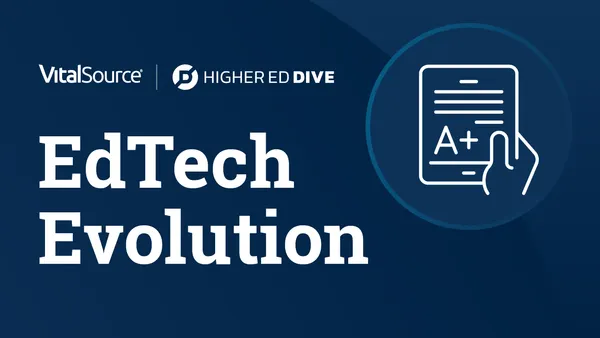Dive Brief:
- A new report on students who attended for-profit colleges draws attention to the aggressive marketing campaigns that encouraged them to enroll and the subsequent educational experience that many found "superficial" and "frustrating."
- The Center for Responsible Lending conducted focus groups with 75 individuals who attended for-profit institutions in Florida — where the industry faces minimal regulation — during the last decade and took out student loans.
- The median debt among the students was $22,000, regardless of whether they finished their program, and many said they had yet to make significant progress paying down their debt. The median figures were higher for female, middle-aged and African-American students.
Dive Insight:
The number of for-profit and career colleges in the U.S. is on the decline in the face of criticism by former students who claim the experience did not justify the high ticket price by failing to connect them to the types of employment opportunities promised during the admissions process.
Data from the Department of Education show that more than 100 such institutions shut their doors between the 2016-17 and 2017-18 academic years. Meanwhile, the number of credentials they awarded dropped by nearly 30% from 2012-13 to 2016-17.
Despite the well-documented history of complaints from for-profit university students, Education Secretary Betsy DeVos recently announced plans to eradicate the Obama administration's gainful employment regulations that threatened to cut off federally guaranteed student loans to institutions that were not able to prove their graduates could earn enough money to pay them off.
As for-profit education comes under the spotlight, some in the industry think that certain aspects of the business model work and should be preserved. As a result, some nonprofit institutions are moving to meld their name and reputation with the convenience and digital footprint afforded by for-profit universities.
For example, Purdue University's $1 deal last year to acquire the for-profit Kaplan University raised eyebrows across the higher education industry. Purdue said the move was intended to help the university gain a stronger foothold in online education.
Grand Canyon University President Brian Mueller has said several nonprofit institutions have expressed interest in partnering with the institution for access to online classes for their students. Previously a for-profit, Grand Canyon was granted nonprofit status from the Higher Learning Commission earlier this year.











